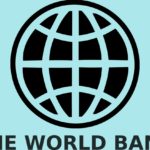ISLAMABAD – In a landmark recommendation, the World Bank has urged Pakistan to fully phase out regulatory duties (RDs) and Additional Customs Duties (ACDs), as part of a comprehensive tariff reform agenda aimed at reviving the country’s struggling export sector.
According to a major new policy document titled “From Inward to Outward – Pakistan’s Shift Towards Export-Led Growth”, the World Bank proposes a shift towards a simplified tariff structure and broader structural reforms to enhance competitiveness and unlock economic potential.
The World Bank’s model scenario recommends reducing the current five customs duty slabs to four, along with the complete elimination of the outdated 5th Schedule of the Customs Act, 1969. It highlights how Pakistan’s increasingly protectionist trade policy, marked by the aggressive use of para-tariffs like RDs and ACDs, has created a complex and distortionary import regime. This has not only inflated costs for domestic producers but also discouraged firms from exporting.
According to the World Bank’s economy-wide model (CGE GTAP), cutting tariffs will boost GDP, employment, investment, and most importantly, exports. The model shows that even though imports would rise, export growth would outpace them, improving the trade balance in the medium term. Importantly, the World Bank dismisses long-held fears that lower tariffs will collapse government revenues or create an import surge, noting instead that reform could lead to a more balanced and sustainable economic structure.
Over the last decade, Pakistan has increased import duties primarily to cover revenue shortfalls and protect domestic industry. However, this strategy has come at the cost of declining exports. Export-to-GDP ratio has fallen from over 15% in the 1990s to just above 10% in 2024 — among the lowest for middle-income countries. High tariffs on raw materials and intermediates, ineffective duty exemption schemes, and protectionist barriers have undermined firm productivity and competitiveness. While some larger, politically connected firms benefit from exemptions, smaller enterprises suffer disproportionately.
The World Bank points out that Pakistan’s tariff structure has ultimately misallocated resources, shifting investment away from productive, export-driven sectors towards rent-seeking industries shielded from foreign competition. This has stalled innovation, stifled growth, and hindered the country’s integration into global value chains.
To support this shift, Pakistan has already begun key reforms. The National Tariff Board has taken over policymaking from the Federal Board of Revenue (FBR), and strategic reforms under the URAAN Pakistan economic blueprint—aligned with the Prime Minister’s transformation agenda—are underway. These include privatization of loss-making state-owned enterprises, business regulatory reforms, and energy sector restructuring.
However, the World Bank stresses that tariff reform alone is not enough. A complementary policy package must include exchange rate flexibility, cheaper and reliable energy, a robust trade finance ecosystem, and regulatory streamlining. Filling leadership roles in competition and insolvency institutions is also crucial.
In conclusion, the World Bank is calling for bold action. Without urgent and comprehensive reform, Pakistan risks missing out on its export potential and deeper economic integration, continuing its cycle of low growth and high vulnerability.
